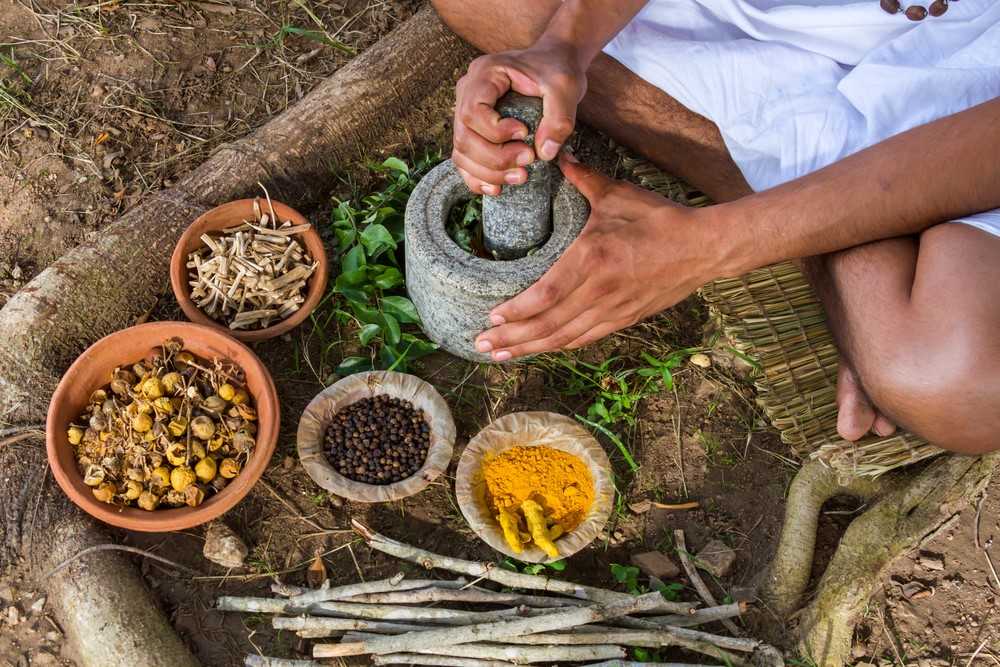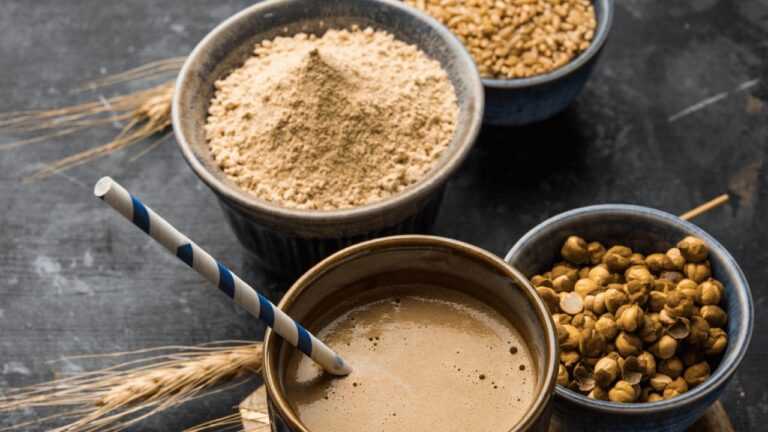Social media is clearly divided into two kinds of people giving health & nutrition advice. The ones that give deliver information based on scientific evidence or research, or with common sense correlation & logic.
The other ones are the pseudoscience group. For whom, words like research, evidence or logic, simply don’t exist. And a breed of such people in India, often support their logic-less claims, in the name of Ayurveda. They in-turn disrespect an ancient and deep science like Ayurveda.

Of the many, one of the recent claims is that the use of coffee/tea is prohibited in Ayurveda.
Let’s understand the reality behind this myth.
Acc. to the Govt. of India, National Health Portal, the origin of Ayurveda goes back to Lord Brahma. Rig Veda, the oldest Veda, has mentions of diseases & medicinal plants. But most material related to health & diseases is given in the Atharva Veda.
However, the earliest codified document on Ayurveda is Charaka Samhita, written by Acharya Charaka, which talks about internal medicine. Another one is Sushruta Samhita, written by Acharya Sushruta, which is dominated by surgical procedures and techniques.
With this information, there is no known date of origin or Ayurveda. But Charak Samhita dates back to 1st Century AD.
Now let’s shift our focus to origin of coffee in India. The coffee plant is not a native Indian plant. Coffee is said to have originated in Ethiopia. But it made its way to Yemen, sometime in the 15th century, and slowly to the entire world.
However, when it comes to introduction of coffee in India, the credit goes to a Sufi Saint named ‘Baba Budan’. After his pilgrimage to Mecca in the 16th century, when Baba Budan was ready to board his return ship to India, from the port of Mocha, he was offered a black & sweet liquid, which he found to be instantly refreshing and invigorating.
But coffee beans were prized possession back then, and stealing them, was punishable by death. However, Baba Budan, carefully smuggled seven coffee beans, by strapping them to his chest, and planted them in Chikmagalur, Karnataka, which is also called the birthplace of coffee Indian coffee.
On the other hand, caffeine found in coffee, was discovered much later in 1819, by a physician called Friedlieb Ferdinand Runge who isolated and purified the white crystalline substance.
Moving on to Tea. The credit for creating India’s vast tea empire goes to the British, who discovered tea in India. The East India Company after losing its monopoly in China in 1832 has taken up cultivation of Tea in India (Assam) in 1834. The first commercial batch of Tea ever produced in India, came from Assam in 1839.
So, if Ayurveda is over 2200 years old;
Coffee came to India app. 600 years ago, but became widely known much later;
Tea is even new, with a history of app. 180 years in India;
With these timelines, can anyone tell me, when did coffee & tea became prohibited in Ayurveda. Acc. to which ancient Ayurvedic text or Vedas, coffee & tea are harmful ??
The answer is, None!! Ayurveda has no mention of tea or coffee anywhere in any of its earliest texts.
But if you read the logic given on various websites related to Ayurveda online, you will find all of them giving different, but mostly self-made reasons to put down these beverages.

Acc. to different websites:
- Ayurveda recommends not more than 1 cup of coffee/day.
- Ayurveda recommends caffeine-free, herb-and-spice blends
- People with excess Pitta or Vata in their constitutions should be cautious and probably avoid coffee.
- According to Ayurveda, coffee depletes the body of vital energy.
And, there are tons of such logic-less and baseless recommendations, in the name of Ayurveda. Then there are websites selling you Ayurvedic coffee, as an healthier alternative to conventional coffee.
You will find similar recommendations pertaining to tea also, specially black-milk tea, which Indians relish. But, you also have companies selling you healthier alternative in form of Vata tea, Pitta tea, and Kapha tea, or other forms of herbal tea.
In reality, when it comes to tea & coffee, they are some of the healthiest beverages in existence. Thousands of studies have shown, that consumption of 3 to 4 standard cups of coffee daily has been consistently associated with a reduced risk of several chronic diseases, including cancers, type 2 diabetes, cardiovascular diseases, neurodegenerative diseases, liver diseases, psychological disorders etc.
When it comes to coffee intake limit, for healthy adults, the FDA has cited 400 milligrams a day—that’s about four or five cups of coffee—as an amount not generally associated with dangerous, negative effects. However, there is wide variation in both how sensitive people are to the effects of caffeine and how fast they metabolize it (break it down).
Just for reference:
- 1 cup of brewed coffee contains about 95mg caffeine.
- The same amount of instant coffee contains about 60mg caffeine.
- 1 shot espresso contains about 65mg caffeine.
- 1 cup of black tea contains about 47mg caffeine.
- Green tea contains about 28mg.
So, if you are having 1-2 cups of tea or coffee, you are well within the healthy limits, and relish your regular tea & coffee, without any worries whatsoever. You can have it in any way you like, be it black or with milk.

The only concern may be excess sugar. But, if you are adding 1-2 teaspoon of sugar in your beverages, there is again no issues at all, be it in terms of overall calories or health benefits.
Tea/coffee are virtually calorie free beverages. If you add 1 teaspoon of sugar, it’s just 16-20 calories. If you add half milk and half tea, it can add app. 40-80 calories more, depending on the type of milk used.
Which means in most cases, 2 cups of milk tea with little sugar, will give you not more than, 100-160 calories.
The same can be said for coffee too.
On the other hand, just like any other food or beverage in the world, few people may be sensitive to tea or coffee, and can have acidity issues, or some other health problem. But, this is an individual issue, not the problem of the beverages as such.
Therefore, coffee & tea in moderate amounts are not just absolutely safe, but excellent for your overall health & psychological wellbeing, and no Ayurvedic text has never given anything against the normal use of tea & coffee in your daily life.



